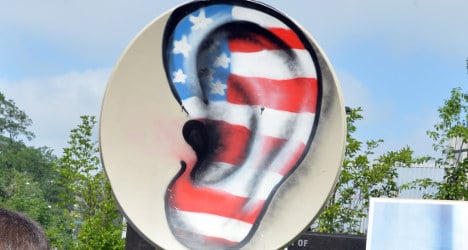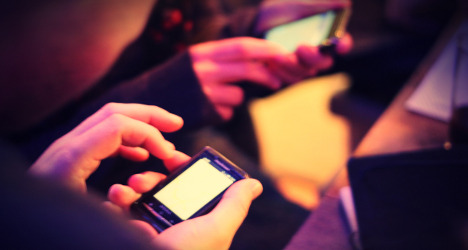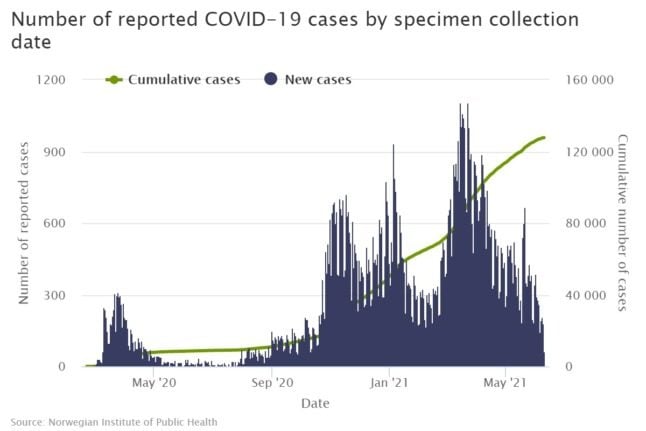LATEST:
- Hollande tells Obama on the phone that "spying is unnacceptable"
- White House responds to French complaint saying: "All countries spy"
- France said it will will press for new Europe-wide data privacy rules at an EU summit this week.
- US spy agency NSA recorded 70 million phone calls made in France in one month, Le Monde newspaper claimed on Monday
- Paris announces it will "immediately summon US ambassador over the claims
- Prime Minister Jean-Marc Ayrault "deeply shocked" over claims, says eavesdropping had "no strategic justification"
- The International Federation of Human Rights tells The Local "the French government must now act to protect its citizens"
France's foreign minister announced on Monday the "immediate" summoning of the US ambassador over a report that American spies eavesdropped on millions of calls made by French citizens.
"I have immediately summoned the US ambassador," Laurent Fabius told reporters as he arrived for an EU foreign ministers meeting, adding a meeting would take place "this morning" at the ministry in Paris.
In its online version on Monday Le Monde claimed the NSA spy agency taped 70.3 million phone calls in France over a 30-day period between December 10th and January 8th, 2013,
According to the newspaper NSA used various methods to track and collect the phonecalls.
The NSA automatically picked up communications from certain phone numbers in France, which were then recorded. The same system picked up and recorded text messages, based on certain key words that appeared. The NSA would also systematically record the communication history of each of their targets under a programme code-named "US-985D."
The techniques used to intercept communications appeared under the codes "DRTBOX" and "WHITEBOX". On average NSA were intercepting three million calls each day over the one month period, which at times rose to 7 million.
Le Monde said the documents gave grounds to think the NSA targeted not only people suspected of being involved in terrorism but also high-profile individuals from the world of business or politics.
US authorities declined to comment to the French daily on the "classified" documents and when The Local contacted the US embassy in Paris on Monday, no one was available for comment.
The International Federation of Human Rights (FIDH), which earlier this year filed a court complaint in France aimed at forcing French authorities to investigate the PRISM programme, told The Local: "This revelation confirms that we were right to lodge this complaint.
"The government must make all means available to the investigation into this serious affair in order for the truth to be found," said FIDH lawyer Emmanuel Douad.
"This affects not just the liberty of certain individuals but of the French public as a whole. When you look at the number of calls and messages monitored, potentially every citizen in France could have been affected.
"The French government must act to protect the citizens of this country as well as the respect for our fundamental principles."
French Prime Minister Jean-Marc Ayrault, for his part, said he was "shocked" by the claims, and that he had asked Washington for clear answers.
"I am deeply shocked…. It's incredible that an allied country like the United States at this point goes as far as spying on private communications that have no strategic justification, no justification on the basis of national defence," he told journalists in Copenhagen.
Later on Monday France also said it will will press for new Europe-wide data privacy rules at an EU summit this week.
The White House brushed off France's complaints about the new allegations of eavesdropping simply saying "all nations" conduct spying operations.
"As a matter of policy we have made clear that the United States gathers foreign intelligence of the type gathered by all nations," said National Security Council spokeswoman Caitlin Hayden.
In July this year Le Monde newspaper caused a similar stir when it claimed that French intelligence services operated their own Big Brother spy programme to keep tabs in its citizens.
In an editorial defending its decision to publish Monday's claims about the NSA the newspaper said: “Le Monde believes that the public should not be kept in the dark about listening and spying programs, that are of such a dimension that they bring down the whole principles of checks and balances in a democracy.
“The “Snowden revelations” are not intended to weaken democratic societies but to strengthen them and to raise awareness of the risks to our values of this gigantic filtering of data.
“The freedom to communicate and enjoy the privacy of correspondence is a cornerstone of functioning democracies."
SEE ALSO: Top 10 scraps between the US and France
Le Monde's article followed similar revelations by German weekly Der Spiegel that US agents had hacked into the email account of former Mexican president Felipe Calderon.
Mexican authorities have also said they will be seeking answers from US officials "as soon as possible" following the allegations.
This is not the first time France has reacted with anger over claims the US had been snooping.
In July, President Francois Hollande demanded the US "immediately" stop spying on French envoys after it emerged its offices at the UN in New York and its embassy in Washington DC had been bugged.
The government then threatened to pull the plug on crucial free trade talks between the EU and the US.
The spying revelations even forced the French PM to take drastic action by banning his ministers and their staff from using smartphones to communicate sensitive data.
In his memo the PM also told ministers to avoid sending text messages to each other.To justify the measure, the circular pointed to the recent “security threats”
Edward Snowden, who has taken refuge in Russia, is wanted in the United States for espionage and other charges after leaking details of the NSA's worldwide snooping activities.
In August a court in Paris opened a formal investigation into the PRISM program of electronic surveillance run by the US National Security Agency.
Prosecutors will investigate possible "fraudulent access to and maintenance of an automated data processing system," the "illicit collection of data of a personal nature," "attacks on privacy," and "violations of the secrecy of correspondence," according to BFMTV.
The investigation was opened after two human rights organisations earlier this summer lodged a complaint with the court, aimed at exploring whether a raft of American IT firms including Google, Yahoo and Apple had cooperated with US authorities to help them gather intelligence.
In a statement released at the time, the International Federation of Human Rights (FIDH) and the French League of Human Rights (LDH) attacked the mass surveillance of global communications by US intelligence services that was carried out "under the guise of the fight against terrorism and organized crime".
Don't miss a story about France – Join us on Facebook and Twitter.






 Please whitelist us to continue reading.
Please whitelist us to continue reading.
Member comments